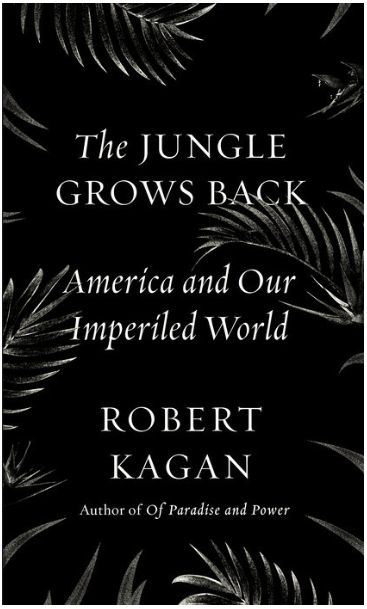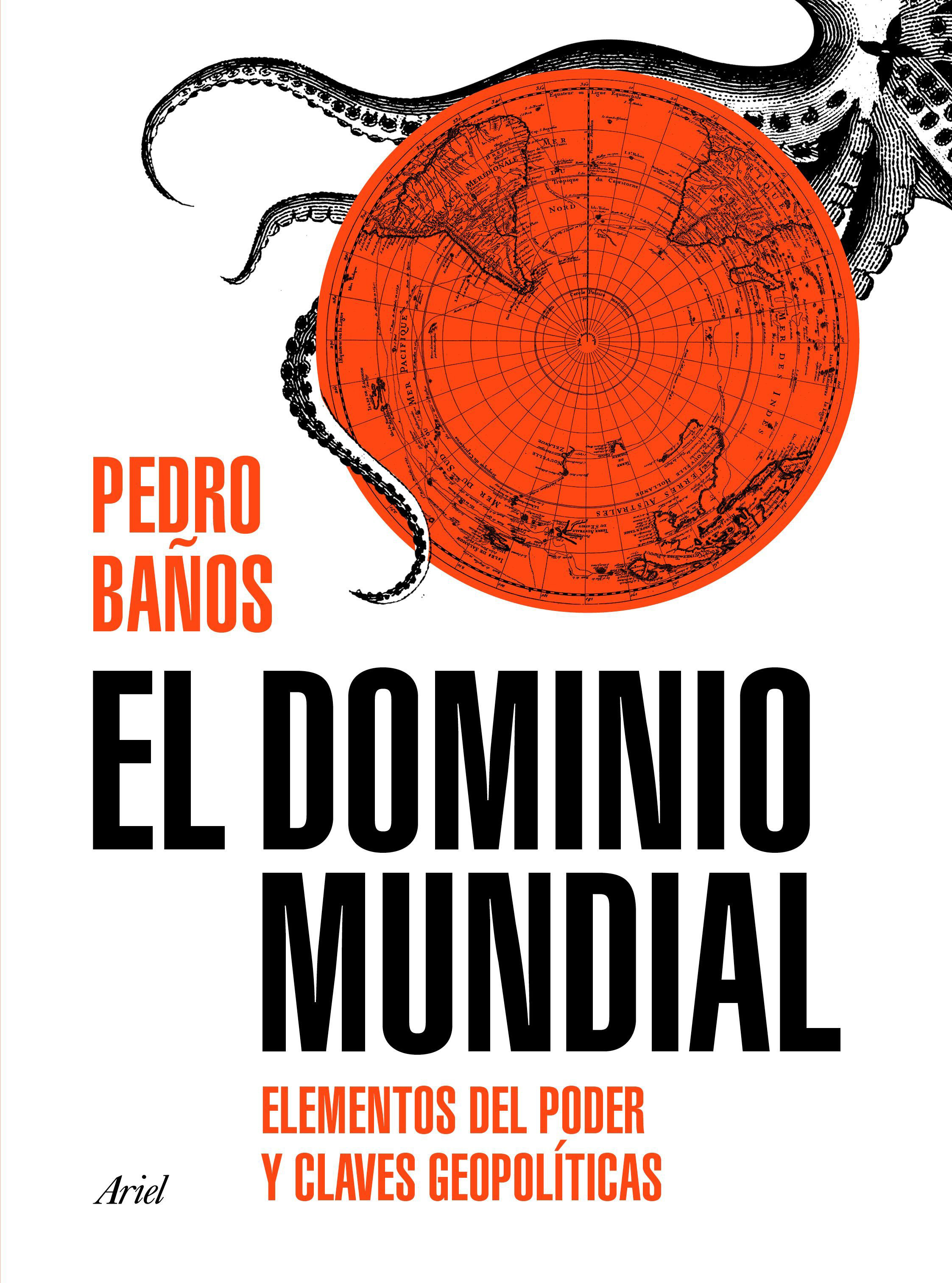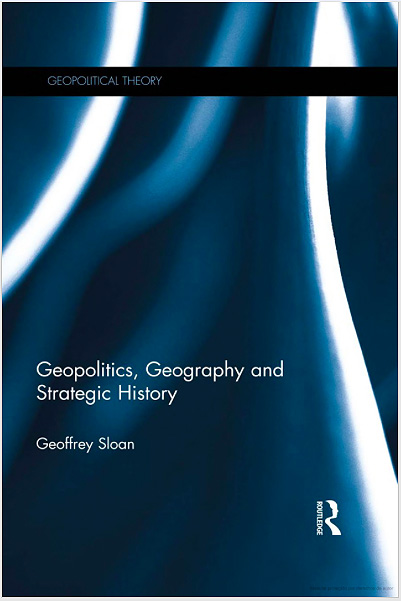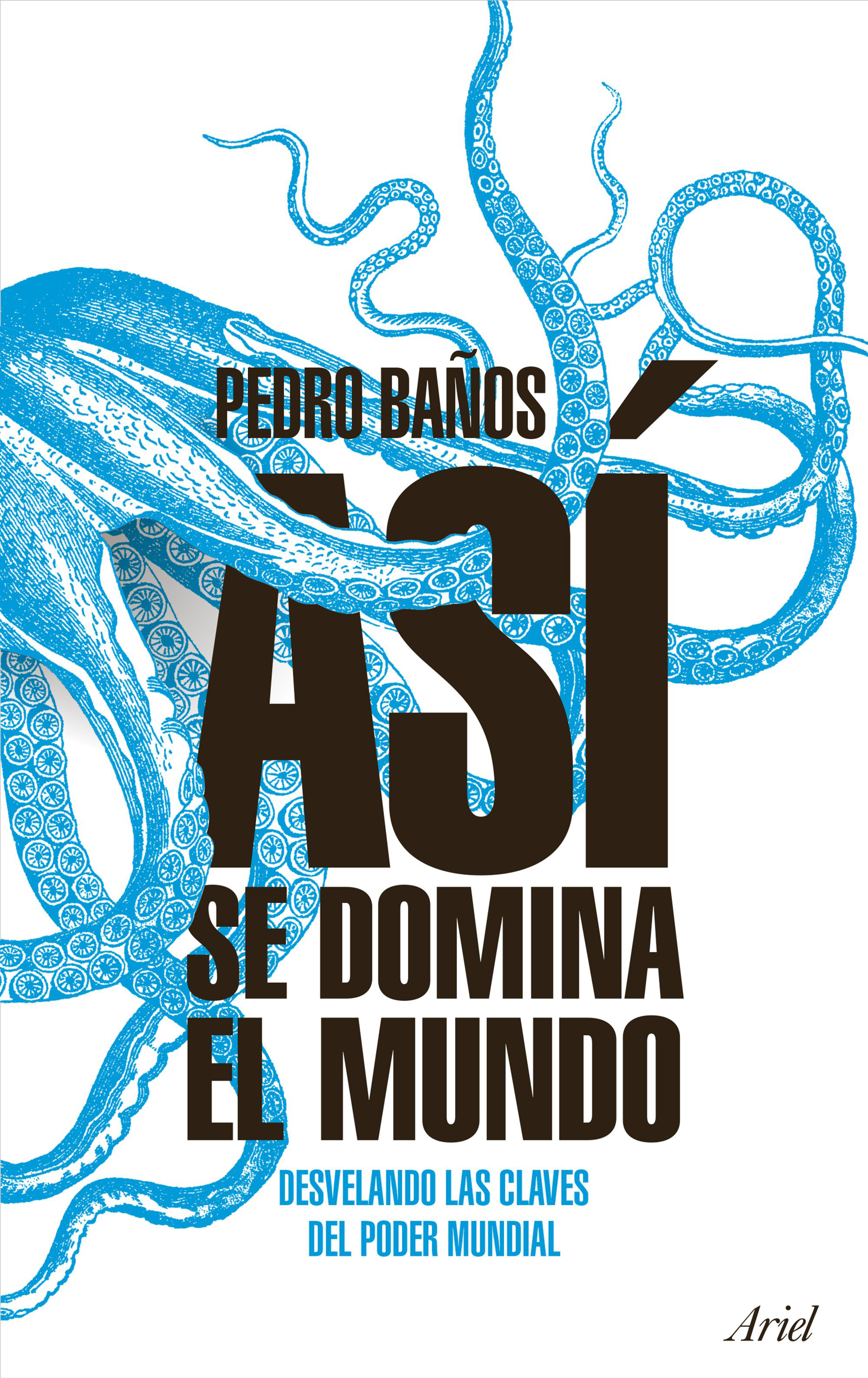Ruta de navegación
Menú de navegación
Blogs
Entries with label geopolitics .
[Robert Kagan, The Jungle Grows Back. America and Our Imperiled World. Alfred A. Knoff. New York, 2018. 179 p.]
review / Emili J. Blasco
 |
At this point in the century, it is already clear that the consecration of the liberal system in the world, after the breakup of the communist bloc at the end of the Cold War, is not something that will happen inexorably, as was thought. It's not even likely. The divergent models of China and Russia are gaining traction. Democracy is in retreat, even in Western societies themselves.
It is the jungle that grows again where a garden had been extended. This is the image that Robert Kagan uses in his new book to warn about the desirability of the United States not shirking its responsibility to lead the effort to preserve the liberal world order. For Kagan, the liberal system "was never a natural phenomenon," but a "great historical aberration." "It has been an anomaly in the history of human existence. The liberal world order is fragile and not permanent. Like a garden, it is always besieged by the natural forces of history, the jungle, whose vines and weeds constantly threaten to cover it," he says. It is an "artificial creation subject to the forces of geopolitical inertia," so that the question "is not what will bring down the liberal order, but what can sustain it."
Kagan is outlived in the media by the label He is a neoconservative, although his positions are in the central current of American Republicanism (majority for decades, until the rise of Donald Trump; in fact, in the 2016 campaign Kagan supported Hillary Clinton) and his work is developed at the rather Democratic Brookings Institution. He does defend clear U.S. leadership in the world, but not out of self-assertion, but as the only way for the liberal international order to be preserved. It is not that, by sponsoring it, the United States has acted disinterestedly, because as one of its builders, Secretary of State Dean Acheson, said, in order to protect the "American experiment in life" it was necessary to create "an environment of freedom" in the world. But the other Western countries, and others where the regime of freedoms of democratic societies has also been extended, have also benefited.
The thesis Kagan's central point is that, although there was America's own interest in creating the international architecture that ordered the world after World War II, it benefited many other countries and guaranteed the victory of free societies over communism. Crucial to this, according to Kagan, is that while Washington at times acted against the values it preached, it generally played by certain rules.
Thus, the U.S. "did not exploit the system it dominated to gain lasting economic advantages at the expense of the other powers of order. Put simply: he could not use his military dominance to win the economic competition against other members of the order, nor could he treat the competition as zero-sum and insist on always winning. It's true that the U.S. benefited from being the main player both economically and militarily, "but an element of core topic to hold the international order together was the perception of the other powers that they had reasonable opportunities to succeed economically and even sometimes surpass the United States, as Japan, Germany, and other nations did at various times."
Kagan admits that Washington's willingness to engage in large doses of fairplay on the economic plane "did not extend to all areas, particularly not to strategic issues." In these, "order was not always based on rules, because when the United States deemed it necessary, rightly or wrongly, it violated the rules, including those it claimed to defend, either by carrying out military interventions without UN authorization, as it did on numerous occasions during the Cold War, or by engaging in covert activities that had no international backing."
It has been an order that, in order to function, "had to enjoy a certain Degree of voluntary acceptance by its members, not to be a competition of all against all, but a community of like-minded nations acting together to preserve a system from which all could benefit." "Order was kept in place because the other members viewed U.S. hegemony as relatively benign and superior to other alternatives." test This is why the countries of Western Europe trusted Washington despite its overwhelming military superiority. "In the end, even if it didn't always do so for idealistic reasons, the United States would end up creating a world unusually conducive to the spread of democracy."
Kagan disagrees with the view that after the dissolution of the USSR, the planet entered a "new world order." In his view, what was called the "unipolar moment" did not actually change the assumptions of the order established at the end of World War II. That is why it made no sense that, with the fall of the Berlin Wall, the world was thought to be entering a new era of unstoppable peace and prosperity, and that this made America's role as a gardener unnecessary. The withdrawal from the world carried out by Trump and initiated by Obama (Kagan already in 2012 published The World America Made, in defense of American involvement in the world), would be allowing the return of the chaotic vegetation of the jungle.
The Jungle Grows Back is in the format of a small book, typical of a essay It is a restrained film that aspires to convey some fundamental ideas without wanting to overwhelm the reader. Despite pointing out the dangers of the liberal order, and noting that the United States is in retreat, the book offers an optimistic message: "This is a pessimistic view of human existence, but it is not a fatalistic view. Nothing is determined, neither the triumph of liberalism nor its defeat."
[Pedro Baños, The World Domain. Elements of power and geopolitical keys. Ariel. Barcelona, 2018. 366 p.]
review / Manuel Lamela
 |
If your previous submission, The Keys to World Domination, served as a guide to introduce us to the vast world of geopolitics and international relations, in his new work, Colonel Pedro Baños Bajo, unveils us and gives us a glimpse of the sample the key elements and instruments for world domination and how these are used by the various actors in their constant struggle for power on a global scale. We are on the verge of a paradigm shift on the international scene, and this process, as the author explains, will be led by demography and technology.
In his business In order to democratize geopolitics, Pedro Baños uses clear and precise language to facilitate the understanding of the work. There will be numerous illustrations present in the book that will be accompanied by brief explanations to get a broader vision of the topic to be treated.
The Elements of World Power is the name given to the first half of the book, it is divided into nine different parts that according to the author are key when it comes to understanding the global power game. In this first half, issues of rigorous relevance and tremendously important on the international scene will be discussed. From the hybrid threat, which represents a new way of waging war, to the role of intelligence services today, to the transcendental importance of natural resources and demographics. It is certainly a fairly comprehensive analysis for those looking for a brief explanation of the greatest challenges that threaten to destabilize our current social order. It is true that some of the explanations can be defined as simple, but this does not have to be understood as a pejorative characteristic. The author's ability to synthesize extremely complex issues can encourage the reader's curiosity and make the leap to other great works where they can delve into more specific topics.
In the second part of the book we find a more concrete analysis in which the author focuses on only two factors: technology and demographics. The population imbalance, the large migratory flows and what some call the fourth industrial revolution are some of the issues that Colonel Baños highlights in his analysis. In the author's opinion, the transformations to which these two elements will be exposed will mark the course of humanity in the coming years. In this more incisive study, the author sample how vulnerable human society is to the future changes that are to come and how this alleged weakness will make conflicts difficult to avoid in the near future. Pedro Baños argues that despite the belief we have of living in a perfectly organized and structured society, the reality is far from the latter, since it is a small group The human being charged with directing and leading the destiny of all humanity as a whole.
Despite distilling a certain pessimism throughout the work, Pedro Baños decides to conclude his analysis with a message of hope, advocating for a united humanity. manager and in solidarity with their environment.
[Geoffry Sloan, Geopolitics, Geography and Strategic History. Routledge. New York, 2017. 251 p.]
review / Emili J. Blasco
Today we are witnessing a frequent use of the term geopolitics that is often devoid of content. After decades of the word being stigmatized, given the contamination it suffered in the first third of the twentieth century by elaborations such as Lebensraum, its employment It has become widespread in recent years as China and Russia have begun to take positions in the new post-unipolar world order. However, it is not uncommon to speak of geopolitics as a mere synonym for international relations, without a specific meaning.
Remembering the strict value of the concept, stripping it of trivializations or misunderstandings, is the purpose by Geoffrey Sloan, a British academic specialising in Halford Mackinder, one of the great names in geopolitics. Sloan understands this as a "tripartite construction" of geography, strategy, and history, elements that give rise to the degree scroll of his book.
The author locates the dawn of geopolitics in a "first wave" of thinkers distant in time and in their philosophical conceptions, such as Aristotle, Machiavelli and Montesquieu, but it was not until the "second wave", at the end of the nineteenth century and the beginning of the twentieth, when the discipline adopt that name and define its contours with the help of Ratzel, Mahan, Mackinder, Haushofer... After a long period of ostracism, because it was considered that some totalitarianisms had fed on the ravings of certain schools, at the beginning of the 21st century the term geopolitics resurfaces. However, in Sloan's opinion, it is affected by a triple problem: its lack of definition, the lack of bibliography and its confusion with realpolitik.
 |
Today, people have begun to talk about geopolitics so often that it has lost its proper meaning. "The term geopolitics has enjoyed a ghostly life after death, becoming used everywhere while being drained of substantive theoretical content, and is used in so many ways that it has become meaningless, if there is no further specification," warns a statement. quotation by S. R. Gokmen.
In contrast to its generic use, assimilated to that of international politics, Sloan defends its original meaning, absolutely attached to geography. "Although all the politics of a state do not derive from its geography," say the 1938 words of Nicholas Spykman—another classic of geopolitics—that open the book, "the state cannot escape that geography. Size, shape, location, topography and climate provide conditions from which there is no escape, no matter how qualified the Ministry of Foreign Affairs or how resourceful the General Staff may be."
The temporal break in geopolitical thought – Sloan notes that no book on geopolitics was published in English between 1945 and 1977 – may explain why many today have lost track of the strict geographical content of the term. But even among those who seem to want to give it a specific meaning, there is the confusion of assimilating geopolitics with the realist theory of international relations. According to Sloan, "Perhaps the most common misconception about geopolitical theory is its symbiotic relationship to the realist approach. It maintains that all thinking about international relations should begin with the recognition of the primacy of power and that geographical factors are a vital part of the evaluation of power." The author warns that in geopolitics there is also room for an idealistic approach, since it is not something tied to the administrative state nor is it exclusively identified with conservative political ideologies.
Sloan proposes a "trinitarian structure" of geopolitics, in a diagram where the relationship between geography and strategy generates geostrategy, the relationship between geography and history gives rise to historical geography, and the relationship between history and strategy derives into diplomatic history.
The approach of the work is in its first part theoretical, and then gives way to certain historical concretions, for the most part in the light of concepts elaborated by Mackinder.
[Pedro Baños, Así se domina el mundo. Desvelando las claves del poder mundial. Ariel, Barcelona 2017, 468 pages]
review / Albert Vidal
The vast majority of wars fought in the world always have a vital economic background, although other motives (political or religious, for example) are often used to safeguard these economic interests. The book Así se domina el mundo, by the analyst and researcher Pedro Baños, former head of Counterintelligence and Security of the European Army Corps, with experience in various international missions (UNPROFOR, SFOR and EUFOR), states that economic interests are the ones that rule the International Office is the main thesis , illustrated with great issue of examples, an d is supported by the book Así se domina el mundo, by the analyst and Pedro Baños, former head of Counterintelligence and Security of the European Army Corps, with experience in various international missions (UNPROFOR, SFOR and EUFOR).
"The United States is still trying to dominate the world. But its big competitor is China. Especially when it comes to the economic sphere. That is why they wage economic war, and also through interposed actors in many scenarios. Everything has an economic substratum," writes Colonel Baños. China, for its part, is determined to strike a blow against the dollar. Beijing is preparing a new contract format for crude oil transactions using the yuan, which would be fully convertible into gold on the Shanghai and Hong Kong exchanges. If this were to happen, it would lead to the main reference letter of the Asian oil market, and allow crude exporters to circumvent the dollar-dominated benchmarks.
Afghanistan is another example of the primacy of Economics in geopolitics. The US decided to return to Afghanistan, where, coincidentally, opium production has multiplied. This had been reduced by the Taliban to minimal levels, as they banned opium cultivation and the Afghans switched to cotton production. But then, according to Baños, a strong civil service examination arose from the US cotton producers, so that some US states rebelled because they felt that the skill of cheap Afghan cotton could ruin them. Baños points out that there are Pentagon reports recommending such intervention. Moreover, Afghanistan is extremely rich in minerals. That is why Donald Trump declared that "China is making money in Afghanistan with rare minerals while the United States makes war".
These appreciations confirm the realistic and pragmatic way in which Baños interprets the events taking place in the world. His vision of geopolitics is integrated into political realism, close to Machiavelli's interpretation. He has a Hobbesian vision of the international scenario. He defines current geopolitics as "the activity developed with the aim of influencing the affairs of the international sphere, this exercise being understood as the aspiration to influence on a global scale, while avoiding, at the same time, being influenced".
This book is a great opportunity to enrich our perspectives on the international scene. With simple language, Baños manages to convey complex concepts through different images. One of them, central to the book's thesis , is the comparison of the international scenario with a playground at high school: in the playground (the world), the great powers (the bullies) enjoy circumstantial allies (cowardly children who decide to join the court of sycophants); then there are outcasts (who suffer the malice of the bullies) and others who simply resist the pressure of group or decide to isolate themselves from the group of students. Hypocrisy, as the author well describes, is a constant in the International Office.
 |
Geopolitical principles, geostrategies and errors
Baños presents four immutable geopolitical principles that, in essence, have always been present in history (even if there are accidental changes). They could be summarized as follows:
-
The State is a living being, which has vital and existential needs, as well as those of development and evolution.
-
The Economics is in charge, the backbone of conflicts and the source of tensions. These are economic interests often related to the arms industry.
-
The determining weight of history, with repetition of the same scenarios, such as Afghanistan (its orography has been a graveyard for empires and superpowers) and Russia (with a winter that ruined the plans of Napoleon and Hitler).
-
There are no eternal allies, but permanent interests. Interests create strange alliances, and these alliances are often ephemeral. For example, Saudi Arabia is one of the main allies of the USA, when their values, in principle, are totally contradictory.
After the description of geopolitical principles, the book reviews 27 geostrategies that have been recurrently used on the international scene. This section is very useful for understanding many of the movements or events occurring in the world. Some examples of such geo-strategies are:
-Theintimidation of a strong country towards other weak countries, using them for their own interests.
-Theencirclement and counterencirclement.
-Thekick to the ladder. Examples are the refusal of the atomic powers to allow others to join the nuclear club and the obligation that developed countries impose on underdeveloped economies to open up to the free market.
-Theweakening of the neighbor.
-The breaking point.
-Fostering divisionby sowing tares.
-Religious fervor as tool to gain followers.
-Goodism. In the Syrian war, we have seen killings by the Islamic State, but the killings by the international coalition, which in our eyes appear to be the rescuers of the Syrian people, have been systematically hidden.
¬Thecreation of the need. The need to buy weapons is based on concepts such as war on terrorism, preventive strategy, and others, which result in a fabulous business of buying and selling weapons.
-Indirect domination. Between 1946 and 2000 the White House has interfered in 81 elections in 45 countries, according to declassified CIA documents.
-Thecreation of the enemy. NATO and the USA encourage the enmity of Western countries towards Moscow, so that they become subordinate to NATO and ask it for protection and buy weapons from it,
-Themadman. This is a strategy used by North Korea, threatening catastrophic consequences to avoid being attacked.
Banos also exposes the mistakes that powers often make in their international actions. A couple of them are:
-
Ignoring the idiosyncrasies of peoples. The Western world is composed, at most, of 900 million people. The rest of the world is home to 6.6 billion. On the other hand, globalization is basically Anglo-Saxon: not all peoples necessarily want to participate in it. And given the biased view we have of the world, we often have a wrong conception of other peoples. The sad reality is that many interventions abroad are carried out without any subject study or examination of the potential consequences on the cultures and peoples affected.
-
Excessive self-confidence. There is no small enemy, not even an asymmetric one. With guerrilla tactics, even a group of peasants can become a real threat to the plans of a great power. In fact, history has repeatedly shown how those who have acted too confidently have been defeated by their more cautious adversaries.
Post-truth and disinformation
Pedro Baños stresses the importance of narratives. According to the author, to have one's own narrative is to win the game. The narrative makes reality mutate. And narratives become an instrument of emotional control of the population, which serves to justify what suits them.
On the other hand, it makes reference letter to the truth, which runs the risk of being reconstructed to justify national or corporate interests. The citizenry, says Colonel Baños, must be vigilant: "those who decide for us do so subtly, even resorting to the so-called 'post-truth', which is nothing but a big lie disguised as truth". As the author points out, the core topic of power is to influence a deliberately uninformed world, in which many conflicts of interest between states, individuals, companies, lobbies and powerful families are intermingled, all trying to exert as much influence as possible.
The cyber world is the new great stage for this battle. A very intense psychological and propaganda war is being waged there, led by fake news and disinformation. These two worlds (one physical and the other virtual) are connected by the human mind. That is why it is vital to be wary of attacks that, although we may not realize it, take place every day, veiled or not. The powers are in continuous action, with only one purpose, as Baños concludes: "to control the world and avoid being subjugated by another power. That is the only goal".
